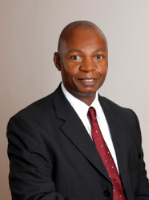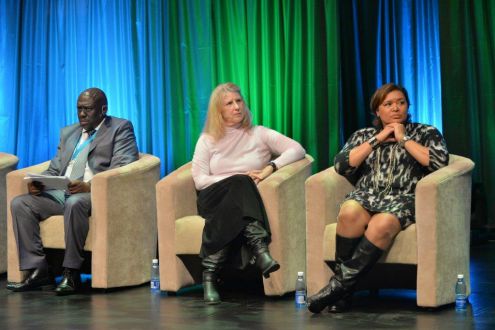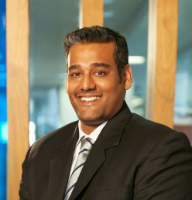|
Fairheads Times September 2015
Enjoy the Spring issue of Fairheads Times!
 Retirement Funds not geared to administering children's benefits
At Fairheads we are concerned that many large retirement funds have not yet appointed a beneficiary fund and choose to retain and administer minors’ benefits in the retirement fund itself. In certain circumstances, where the assets of children need to be retained for a short period of time, it would be acceptable to retain these assets in the retirement fund, but this should be the exception rather than the rule.
This article explains why retirement funds are simply not designed to cater for the specialised, high-intensity administration of children’s benefits which require very specific asset allocation, communication and other processes.
At its most obvious, children’s assets should not be administered in a retirement fund as the fundamental objectives are so different. In a sense, a retirement fund is the inverse of a beneficiary fund.
Retirement fund systems are geared towards the contribution phase of retirement, that is, the fund receives money IN from members (through payroll deductions). In contrast, beneficiary funds are geared to paying OUT funds (through income payments to the guardian and ad hoc requests for capital amounts for school fees and the like). The administration, investment, communication and service approaches are therefore very different.
Let us explore this in more depth.
Administration
Retirement funds update their processes predominantly on a monthly basis, but beneficiary funds in contrast are tailored for daily activity and high volume requests. Beneficiary funds therefore need the infrastructure and resources to deal with higher volumes of transactions. To give an idea of the high level of activity, at Fairheads we aim for a member/staff ratio of 400. Bear in mind too that engagement of the beneficiary fund trustees is higher than those in a retirement fund as they need to be available to assess capital assistance claims which may not always fit neatly into a check-box.
Regarding benefit statements, those for a retirement fund will look completely different from those of a beneficiary fund. The latter need to reflect monthly income paid out over the period, as well as capital advances made. They also need to be updated constantly as beneficiaries and guardians want to keep track of their balance, more like a bank account than a long-term investment.
Communication
Whereas most communication between retirement fund members and the employer is conducted through the HR department, website and postal service, beneficiary funds need to follow a very different, high-intensity two-way communication route given the high number of transactions and language/literacy needs of members and guardians.
At Fairheads we have therefore developed a state of the art contact centre and we make use of walk-in centres, roadshows and field agents In more remote areas. For years now we have made exensive use of SMS to notify guardians of payments made and to remind them to update their information. We are also refining distribution through an association with TEBA Limited, including collecting information from beneficiaries and guardians; and the use of voice biometrics for identification and transaction purposes. How many retirement funds would be able to implement such specialised systems to cater for the children whose assets are administered in the fund?
Asset allocation
Asset allocation in a retirement fund is geared towards preservation and growth. Funds are invested to achieve maximum returns without any material need for liquidity to meet short-term member claims. The approach is to maximise the retirement benefit payable once the member leaves the fund at retirement. An appropriate lifestage investment philosophy is used to match the investment mix to the investment horizon. There is little or no need to provide liquidity because, other than early exits, there won’t be any short-term claims on the capital.
In contrast, a beneficiary fund is a vehicle which attempts to stretch the benefit as far as possible while meeting the short-term needs of the child. Asset allocation for children is therefore geared towards income generation as well as capital preservation with a relatively higher level of liquidity so that capital can be paid out for school fees and the like. The essential purpose of the fund is to look after the minor dependent by making regular income payments to the guardian to meet the well-being needs and pay for educational related expenses such as school fees.
An investment mix which provides for this level of liquidity, but also yields the best possible returns must therefore be selected, and actively monitored by the beneficiary fund trustees.
If the child has been sustained and educated to maturity, the objective will largely have been met. (This does not mean that a growth strategy is not followed, however, and most accounts are not necessarily depleted by termination at age 18).
Conclusion
There is no Financial Services Board requirement for specialised administration for children’s assets within retirement funds and trustees are unlikely to invest specially in the specialised systems. Our question to trustees therefore is: do you have a strategy in the retirement fund to look after children’s assets? Is there an investment plan, a documented administration process, a documented governance approach and a plan to keep track of children’s assets?
If not, for all the reasons outlined in this article, trustees have a fiduciary duty to explore the option of a beneficiary fund for housing minor dependants’ assets.
 Message from the CEO
This issue of Fairheads Times reflects a busy couple of months in which Fairheads has been active across all areas of the business.
We introduce readers to our new Chairman, Ethan Dube, who was appointed following the successful completion of our BEE transaction with Vunani in terms of which Vunani is the majority shareholder. We welcome Ethan and look forward to the valuable contribution he will be making at a strategic level.
The lead article continues our series in the options open to trustees under section 37C of the Pensions Fund Act. In this issue we examine why the retention of minors’ benefits in retirement funds is generally incompatible with the specific administrative needs of children and their guardians.
In our key strategic quest to improve accessibility, we also report on an innovative field agents project, where we are literally bringing Fairheads Benefit Services directly to members in a quest to help them remain compliant and able to receive their income. This project is in pilot and will be complementing our guardian roadshows.
Giselle Gould, Business Development Director, reports back on the industry panel discussion she led at the IRFA Conference in Cape Town July, and we also profile David Hurford, Head of Fairheads’ Sponsored Products.
We hope you enjoy the read.
Richard
 Ethan Dube, Non-executive Chairman, Fairheads Benefit Services
Fairheads Benefit Services is delighted and honoured to welcome Ethan Dube as non-executive Chairman of our company.
Ethan is no stranger to the financial services industry in South Africa. Over his career he has been closely associated with some of the country’s major corporate finance and asset management brands before co-founding Vunani, the highly respected black-owned diversified financial services group. Ethan has been CEO of Vunani since its inception in 1998 and led it to a successful listing on the JSE in 2007.
Ethan holds an MSc in Statistics and an Executive MBA which he obtained from the University of Uppsala in Sweden.
Fairheads Times caught up with Ethan following his first board meeting at Fairheads Benefit Services.
Do you have any particular views on leadership?
Ethan: I believe firmly that a leader needs to surround him/herself with strong people - ideally even stronger than yourself. You need to understand what they do and then give them space to operate. At Vunani, we are impressed with the very strong management team at Fairheads. The business is well run and highly focused and we are excited about the future.
What do you see as the synergies?
Ethan: As a large institutional player, Vunani believes that we can add value to Fairheads, its staff, and its corporate and member clients alike. We have built a business at Vunani that gathers, manages and administers third-party assets. Fairheads does the same, in a complementary yet not overlapping sector – that of minors’ benefits. Children are vulnerable and they need the highest possible level of fiduciary care. Fairheads has shown over decades that they are THE specialists in the country in this field.
Tell us a bit about life outside work
Ethan: That’s a tough one as my life is pretty well dominated by work. But I am keen on sport and try to play golf or tennis from time to time. I am also a dedicated family man and try to spend as much time as possible with my family in Cape Town where we live.
IRFA Conference – Giselle Gould leads panel discussion
Giselle Gould, Business Development Director at Fairheads, led a panel discussion at the IRFA Conference in Cape Town in July, as an independent convenor. David Hurford, Head of Sponsored Products, also took part. Following below is a summary of the discussion that was published on the EBNet website post-conference.
Discussion theme: Evolution of beneficiary funds: challenges around age of majority, and how beneficiary funds can align with retirement reform
Giselle Gould summarised the evolution of beneficiary funds from their introduction in 2009 and signficant growth over the past few years. There have been ongoing improvements, such as an increase in the tax-free amount and the ability to use beneficiary funds for the payment of employment-related unapproved benefits.
She noted that the general move away from lump sum payments to individuals in favour of annuitising retirement savings is an important element of retirement reform in South Africa and questioned where lump sums to minor dependants stand in relation to this trend.
A trustee representative, Thomas Mketelwa, Chairman of the KZN Municipal Pension Fund, said that trustees faced a dilemma when paying death benefit lumpsums to major “children” who, at 18, are entitled by law to receive the benefit. He said that trustees often did not feel comfortable doing this, knowing that the beneficiary may not use the funds wisely and lose focus with their studies. He felt that there should be some tests that would be carried out before such payouts were made.
Mr Mketelwa mentioned costs as an inhibiting factor in deciding whether to make benefit payments into beneficiary funds. He also felt strongly that beneficiary fund trustees needed to report back – ideally quarterly - to retirement fund boards on beneficiary fund minor members and show how they were “stretching that rand” for the child’s benefit. Beneficiary funds needed generally to be better aligned with the retirement industry.
Representing the consultants’ point of view, Marilyn Kamp, Pension Consultant at Robson Savage, cited four points of reform (governance, TCF, total cost disclosure and the question of whether to pay lump sums or income, especially to 18-year-olds. She put forward a proposed due diligence checklist comprising reputation, administration, costs, tracing, investments, communication and passion. She concluded that the role of the consultant post-reform could be extended to include encouraging regular report backs to the board, comprehensive communication to all stakeholders (so that important information could be shared more easily) and re-evaluating the beneficiary fund service provider from time to time.

As an administrator representative, David Hurford, head of sponsored products at Fairheads Benefit Services, said that if government and the regulator are of the view that retirees should not receive lump sums at retirement, then the payment of children’s benefits as lump sums does not sit easily with current retirement reform. He mentioned that Fairheads, with the support of a number of retirement funds, had made a submission to the FSB regarding the payment of lump sums to 18-year olds – in effect to pay out at age 21 or when the person had at least attained a Matric or NQ4 equivalent. He called on the audience to support this lobbying effort.
Mr Hurford also called for improved trusteeship, saying that retirement fund trustees could not adopt a default position for the disposal of death benefits. It was important not only to assess the financial competency of the guardian but also to evaluate whether they would responsibly use funds in the best interests of the child. He said that beneficiary fund trustees had a fiduciary obligation to report back on the wellbeing of the minor members in their care.
Regarding costs, he pointed out that while a retirement fund is geared to the contribution phase (paying in) of an employer’s life, a beneficiary fund is geared to paying out. He said that Fairheads Benefit Services had developed a Comparison Rates Model to help trustees assess total costs and services in a meaningful manner. The model had been verified by an independent auditor.
Following questions, convenor Giselle Gould stated the mandates to be given to the IRFA, namely:
• To undertake a survey of its members to assess support for the age 18 vs age 21 issue
• To help facilitate communication between regulators to allow Swazis with assets in South Africa to be considered for repatriation to Swazi registered beneficiary funds.
 Fairheads field agents warmly received
Fairheads Benefit Services is reaching out to members and guardians in a new and exciting way – we now have two field agents on the road, in a Fairheads-branded vehicle which doubles up as a mobile office.
In this way we are bringing service face-to-face service directly into people’s homes or at a place close to them, such as the car park of the local police station. Out come the table and chairs, the laptop and Themba Manzana and Lerato Mokgobu are ready to help!
Since May, the pair have already made day trips to Tembisa, been to Lesotho, Westonaria, Rustenburg, Soshanguve, Vosloorus, Soweto, Welkom, Marikana and Katlehong and are now planning a field trip to KwaZulu Natal. Themba and Lerato share the driving and both attended a 4x4 training course before tackling some of the country’s rougher roads.
Olefile Moea and Nikki Jacobs who are driving the project from Fairheads’ head office say that the project – in pilot phase until December – forms part of the wider regional roadshow initiative which has been highly successful for the past five years.
“What we are now doing is running the roadshows on a rolling basis from mid-October to mid-November, tackling three regions per year. This year we are holding the roadshows in Gauteng, the Eastern Cape and KwaZulu Natal. The focus will be strongly educational,” they say.
Learnings from the roadshow over the past five years showed that, while it is a very valuable communication and education exercise, there remain non-compliant members (whose income payments were stopped because they had not provided an updated certificate of existence, for example). In addition, many of those attending were repeat attendees from previous years.
Nikki says that the field agents idea came about as a way of addressing the non-compliance issue more effectively. It forms part of Fairheads’ strategic aim of improving accessibility to clients in light of the challenges presented by the poor postal system and the high cost of airtime.
The field agents will spend longer periods in the targeted areas in order to provide clients with enough time to complete and return documents. In effect, Fairheads is now doing proactive tracing of those members who are not compliant and visiting them in their own homes to explain what needs to be done to resume/effect payments. If there are a large number of non-compliant members in a certain town or region, then a central venue is selected which could be a community, church or school hall, the police station or a TEBA Limited TEBA branch. (The January 2015 Fairheads Times’ lead story on distribution explained the agreement between Fairheads and TEBA in terms of which clients can be assisted by TEBA staff and submit documents.)

Four quick questions to the field agents
What’s the best thing about the job?
The surprise and joy of some clients when they get exclusive service from us and also a thorough explanation of the product Fairheads offers them (L)
The sheer pleasure of being out in the field. (T)
What are the main challenges?
Long hours! We are on the road from early till late, often having to wait till people have finished work or school. But it is worth the wait because once you get to the heart of the problem i.e why income is stopped, you can be accountable for what went wrong, and work with the client to devise an acceptable resolution. (L)
Security. We sometimes also remove the Fairheads sign from the vehicle for our safety and the clients’ of course, so that we blend in well with the community. (L)
Caution from clients. Some people think it may be a scam as they are not used to such personalised service. We have to allay their fears and prove our credentials. (T)
What languages do you speak?
Between us we cover most of the languages of South Africa, excluding Shangaan.
What motivates you as a team?
Wanting the project to succeed. (T) When I’m back in the office I kind of become sick, it’s too constraining - but on a serious note we are genuinely motivated by applying our abilities to the fullest.
What we are doing aligns with our values and beliefs. (L)

The schedule for our 2015 regional Guardian Roadshows is available on the Fairheads website http://www.fairheads.com/Marketing/Roadshow Workshops 2015.pdf
 David Hurford, Head of Sponsored Products, Fairheads Benefit Services
David has had a successful career, predominantly in banking and senior management, for over 20 years in South Africa, the United Kingdom and Australia.
He is a relative newcomer to the long-standing management team at Fairheads Benefit Services, having joined in 2011, shortly after returning to Cape Town from Perth where he had lived and worked for 12 years.
Although David’s last role was overall leadership of a large mutual bank in Western Australia, he insists that the highlight of his career was his first job – that of an SA Perm bank teller in Darling Street, Cape Town. “There is no better place to learn about customer service than as a bank teller,” he says and this customer-first approach has stood him in good stead whether he is poring over statistical analysis or presenting to boards of trustees.
David says that he was offered two jobs when he returned from Australia but he was attracted to Fairheads because of the nature of its business. He has always had an interest in altruistic matters and continues to give back to the community wherever he has lived.
“At Fairheads it is not just about making a profit, but rather growing the business in a controlled manner so that we can invest back into it for the benefit of all our clients, be they corporate or the member.”
Focus on accessibility
David has helped initiate various projects at Fairheads, including a strong focus on distribution and accessibility to members. Following the protracted postal strike, Fairheads announced a voice biometrics programme and a link-up with TEBA Limited as ways to make Fairheads service more accessible for members and guardians (Fairheads Times January 2015). David has also undertaken extensive industry research and developed the Fairheads Comparison Rates model to help trustees and consultants to be able to better compare service and fee levels among service providers.
He believes strongly in creating your own opportunities within an organisation, raising issues where necessary and then running with projects with the backing of the executive committee.
David has a Bachelor of Business majoring in Finance & Management from Edith Cowen University, Perth. He is married to Rachel, an Australian and environmental engineer, and they are kept on their toes by two young children – Luke aged 2 and Kate aged 2 months.
 Market View
There remains a clear dichotomy within the global economy. The US continues on its path to recovery, as shown by stronger economic growth dynamics and falling unemployment. The focus is very much on the quantum, rather than the timing of interest rate hiking cycle that the US Federal Reserve embarks on. We expect rates to be hiked gradually, and anticipate the first one in September this year.
In contrast, Europe is fighting off deflation and faltering growth with its own quantitative easing programme and is attempting to manage the ongoing fiscal and growth headwinds emanating from Greece. The slowdown in China continues and growth appears unlikely to return to the 9% average that we have become accustomed to over the last decade. This has prompted the People’s Bank of China to cut rates as well as lower the reserve ratio that banks are required to hold, in order to inject liquidity into the economy and support growth.
The combined developments in the US and fall in commodity prices has resulted in continued US dollar strength. China, as a significant consumer of commodities, remains crucial to commodity demand, commodity prices and the fortunes of resource shares. As a command-driven economy that is rebalancing from being traditionally infrastructure-led to more consumer-driven, China is not only a key call for resources, but also an imponderable.
The domestic front
The South African economy is hamstrung by slow global demand for our exports and the disruptive impact of load shedding as Eskom battles to clear its maintenance backlog. Although inflation remains within the target range at present, there are significant upside risks to the inflation outlook. Rising unit labour costs, rising food inflation in light of rand weakness, poor crop yields (due to the impact of drought) and the likelihood of increasing electricity tariffs continue to anchor inflation expectations at the top end of the target band. The South African Reserve Bank followed through on warnings it issued to markets around the threat of inflation, as it continued its policy of interest rate normalisation by raising interest rates by 25 basis points effective 24 July 2015.
A South African environment of higher interest rates has, understandably, been met with dismay by consumers and other economic participants. The country's potential economic growth rate was revised down to 2% (from 3%) by the SARB in the second quarter of this year. Eskom's inability to keep the power on, and continuous and erratic load shedding combined with possible further increases in taxes and administered prices will remain a major constraint on a consumption driven recovery. Economic growth has been weak and moving sideways for a long time, averaging only 2.2% since the beginning of 2011. The ever expanding list of economic headwinds and range of political and legislative changes have left business and consumers feeling battered. This is reflected in weak confidence levels among both groups, with consumer confidence plunging to 15-year lows in the second quarter of 2015. This fragile economic backdrop calls into question the SARB's raising of interest rates due to the consequent impact that higher funding costs have on an already injured economy.

Price stability essential
What we forget is that in the long term, price stability is an absolutely necessary precondition for growth. This is because too much inflation erodes savings; stimulates capital flight as people invest in non-inflationary assets such as real estate, foreign assets and precious metals; makes economic planning very difficult; and in extreme forms can provoke social and political unrest.
Price stability contributes to growth and investment in a number of ways:
• Improves transparency by making the central bank’s intentions explicit in a way that should help the private sector to plan.
• Promotes central bank discipline and accountability.
• Lower inflation reduces risk premiums in interest rates, i.e. the compensation creditors demand for the risks associated with holding nominal assets.
• This in turn reduces real interest rates and increases incentives to invest.
• Price stability prevents an arbitrary redistribution of wealth and income as a result of unexpected inflation or deflation, consequently contributing to financial stability.
Targeting inflation sounds like a simple and easy thing, but it isn’t. When a central bank targets inflation, it is actually trying to manage a broad range of prices that may ultimately reflect in the general price level. If left unchecked, this general price level could undermine financial stability. It includes not only cyclical price changes, but also changes in relative prices, including wages, supply shocks such as fuel and electricity prices, and a sharp rise in the price of one asset class, or a ‘bubble’ that could not only affect price levels, but also financial stability.
The central bank is not insensitive to the source of price pressures and has publicised quite clearly how the MPC thinks about supply-side shocks and what appropriate responses might be1. Similarly, the growth challenges facing the economy are numerous, and mostly out of the realm of monetary policy. A painful, unpopular decision is never easy to make, and while the central bank is clearly cognisant of the economic context in which it operates, the mandate, and the ultimate benefits of price stability, are in fact part of the economic package needed to support faster, more sustainable growth.
1 Challenges of Inflation Targeting in Emerging Market Economies: The South African Case, Brian Kahn (2009)
 Fairheads and The Business Place Philippi: Creating sustainable businesses
The Business Place Philippi (TBPP) in Cape Town has been an enterprise development partner to Fairheads since 2010 and we are excited to be part of this thriving organisation that promotes entrepreneurship and helps create sustainable businesses.
The Business Place is a national network of walk-in centres for entrepreneurs, providing business services, resources and support for business owner and entrepreneurs. Services include legal advice, company registration, BBBEE certificates and internet access, amongst others.
Fairheads’ support of TBPP over the past years has contributed towards a Container Village where office and retail space generates rental income for TBPP, and also towards providing kick-start funding and support for on-site businesses.
More recently, funding has been in support of TBPP’s Business Builder Programme which aims to equip business owners to sustain and grow their businesses, through personal and professional development. Coaching and mentoring of participants form a strong component of the programme, helping participants to navigate the challenges of running a business. In addition, participants receive access to business premises as part of the programme benefits, on condition that they remain actively engaged with the programme.
The programme goes a step further, by facilitating access to direct business opportunities, such as the partnership with Trade-mark, a non-profit organisation that connects homeowners wanting to do renovations with artisans and skilled, reliable tradesmen from the townships and low‐income communities.
Alan Fleming, Director of TBPP who initiated the relationship with Fairheads in 2010, says: “Fairheads' partnership with TBPP goes much deeper than E.D. funding. They have assisted us develop our product base, offered IT support, and are always ready to listen to new ideas. We’re deeply grateful to Fairheads for their incredible support, material or other, and value their enormous commitment to local SMME development over the past 5 years.”
How the Business Builder programme has changed one man’s business … and life
Jesmosi Gore, an artisan and business owner, has been a part of the Business Builder/Trade-Mark programme for over a year. He says that being a part of this programme run by The Business Place Philippi (TBPP) has literally changed both him and his business.

Jesmosi, who has years of experience as a plasterer and painter, has been working for himself since 2009. Even though he is glad to have made that move, there are many challenges that come with being a business owner in the construction industry. This is where the weekly Business Builder sessions have helped him.
His commitment to the programme is obvious - he gets up at 4am in order to get to TBPP by 7am, and then goes straight to his clients when the session ends at 9am. He knows his sacrifice is worthwhile - “I have more money now - management of finance was lacking until I got into this programme. This has been very helpful, the money skills.” And having a mentor on hand or call has made the day-to-day business moments a lot easier.
Visit: http://www.tbp-philippi.org.za/
<< News
|
|